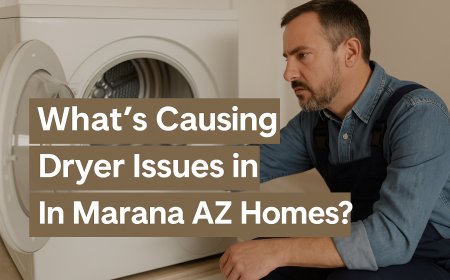Water Heater Problem? Here’s How to Diagnose and Fix Common Issues
Troubleshooting a water heater problem? Learn how to diagnose common water heater issues, quick fixes you can try, and when to call a professional plumber.

Nothing throws off your day quite like stepping into the shower only to be greeted by ice-cold water. A water heater problem can leave your household scrambling, and in some cases, it can even cause water damage or safety concerns.
If your water heater isnt working properly, youre not alone water heater issues are among the most common household maintenance headaches. In this guide, well walk you through the most frequent water heater problems, how to troubleshoot them, and when its time to call a professional.
Signs You Have a Water Heater Problem
The first step is to recognize when your water heater is malfunctioning. Here are the most common warning signs:
-
No hot water: The most obvious sign you turn on the tap or shower and only get cold water.
-
Not enough hot water: The tank runs out of hot water faster than it used to.
-
Strange noises: Rumbling, popping, or banging sounds from the tank.
-
Water leaks: Puddles or dripping water around the base of the unit.
-
Discolored or smelly water: Rusty, brownish water or a sulfur (rotten egg) odor when using hot water.
-
Water is too hot: Water coming out of the tap is scalding.
If you notice any of these symptoms, its time to take a closer look.
Common Water Heater Problems and How to Fix Them
1. No Hot Water at All
For gas water heaters, this usually means the pilot light has gone out, the gas valve is faulty, or the thermocouple is broken.
For electric water heaters, the culprit is often a tripped circuit breaker or a failed heating element.
What to do:
-
Check your breaker panel for a tripped breaker.
-
For gas models, relight the pilot light if its out (follow the manufacturers instructions carefully).
-
If these quick fixes dont work, you may need a plumber to replace a defective part.
2. Not Enough Hot Water
If your tank isnt producing as much hot water as it used to, it could be due to sediment buildup inside the tank. Over time, minerals from your water supply settle at the bottom, reducing the tanks capacity and efficiency.
What to do:
-
Drain and flush the tank to remove sediment (recommended at least once a year).
-
Check and adjust the thermostat it should be set to around 120F for optimal performance and safety.
3. Strange Noises From the Tank
Rumbling or popping noises are a clear sign of sediment buildup. As water heats and bubbles up through the sediment, it creates these sounds.
What to do:
-
Flush the tank. If the problem persists, the heating element may be burning out, or the tank itself may be nearing the end of its life.
4. Water Leaks Around the Heater
A leaking water heater can indicate loose connections, a broken pressure relief valve, or corrosion inside the tank.
What to do:
-
Inspect fittings and tighten them if loose.
-
Check the pressure relief valve by lifting its handle slightly and letting it snap back it should release a little water.
-
If the tank itself is leaking from the bottom, unfortunately, that usually means its time for a replacement.
5. Rusty or Foul-Smelling Water
If your hot water is rusty or has a rotten egg smell, its likely due to a failing anode rod, which is meant to protect the tank from corrosion.
What to do:
-
Have a plumber replace the anode rod. This is a relatively inexpensive maintenance task that can extend the life of your water heater.
When to Call a Professional
Some water heater problems can be fixed with a little DIY effort, like relighting the pilot or flushing the tank. However, certain issues especially leaks from the tank, electrical problems, or recurring failures are better handled by a licensed plumber or technician.
If your water heater is more than 1012 years old, and youre experiencing frequent problems, replacing it might be more cost-effective than continual repairs.
Tips to Prevent Water Heater Problems
Regular maintenance is the best way to avoid unexpected breakdowns:
-
Flush the tank yearly to prevent sediment buildup.
-
Test the pressure relief valve periodically.
-
Have the anode rod inspected and replaced every 35 years.
-
Keep the thermostat set at a safe temperature (around 120F).
These simple steps can help you extend the life of your water heater and reduce the risk of costly repairs.
Final Thoughts
A water heater problem can be frustrating and disruptive, but most issues are manageable with a little know-how. By paying attention to early warning signs and performing routine maintenance, you can keep your water heater running efficiently for years.
When in doubt, dont hesitate to bring in a professional a small repair today can prevent a major disaster tomorrow.
If youre dealing with a stubborn water heater issue or considering a replacement, reach out to a trusted local plumber for advice tailored to your homes needs.























